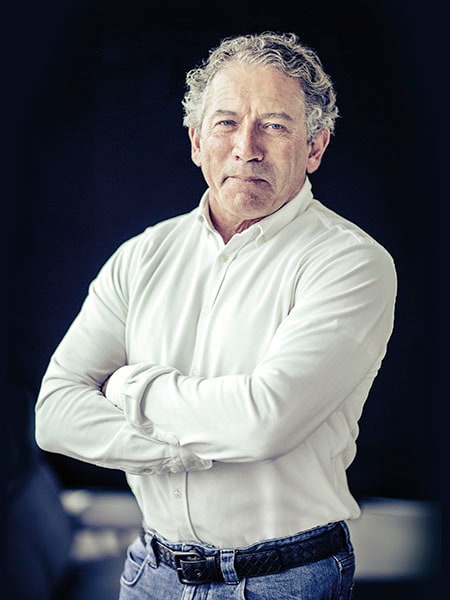Tom Siebel remembers: How to survive a stampeding elephant
Billionaire Tom Siebel on why small firms outperform mammoth rivals, GE's innovation problem and one very memorable safari



Image: Timothy Archibald for forbesQ. Your 2009 elephant goring: What’s the story?
Daybreak in the Serengeti. I’m armed with a Nikon. Herd of 15 elephants, 200 yards away. Gust of wind. Matriarch charges us.
Q. Then?
She hurls the guide about 12 yards away and races up to me. I can smell her. I took a tusk through my left leg. She stepped on my right leg, and my foot came off.
Q. By ‘off’, you mean...?
Detached! Hanging on by a flap of skin.
Q. That’s your pattern: Start a company. Then get almost killed.
We started Siebel Systems in 1993. Two years later, I was kicked by a horse. The prognosis: “Permanent, irreparable brain damage.” It’s hard to tell whether that prognosis turned out to be accurate or not [laughs].
Q. Perhaps the verdict comes through your latest startup, C3 Internet of Things (IoT)?
The Internet of Things needs a software platform. Today there are 19 billion sensors. In five years, 50 billion.
Q. But why your startup? Huge companies like GE plan to own the IoT market.
GE is the world’s greatest 19th-century company. Its market value the last 17 years has gone from $475 billion to about $250 billion. Nice job. These guys make valves and pumps.
Q. So, small companies always win during transitions?
Microsoft built its first product with two people. Apple did it with four. GE takes 3,000 mediocre people and says, “Build a software stack.”
Q. What makes IoT software a hard problem to solve?
Integration. You need a base of big-data and predictive-analytics capabilities, and a platform for third-party apps.
Q. So does this mean Silicon Valley wins the IoT sweepstakes?
No. The next generation of IoT apps in, say, the aerospace industry probably come from Honeywell, not Silicon Valley. Same in health care. And so on.
Q. How did Oracle, your alma mater, spin off so many great entrepreneurs: You, Marc Benioff and others?
Larry Ellison hires bright, type A, think-outside-of-the-box-type people. But Oracle never encouraged a lot of internal entrepreneurism. So people who were entrepreneurs needed to go get that experience someplace else.
First Published: Jun 13, 2017, 06:38
Subscribe Now